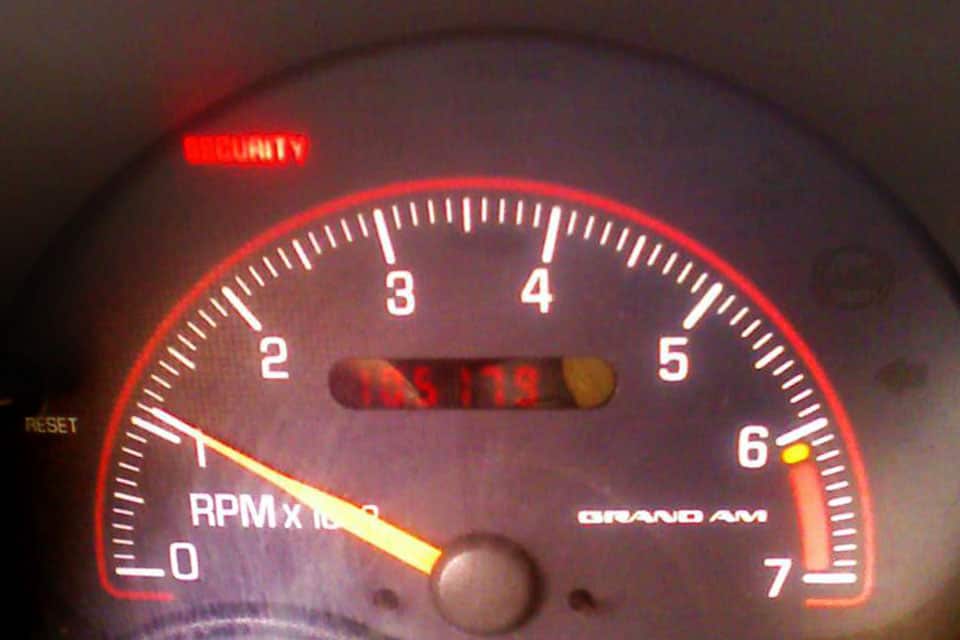Can't Start My Car Because of the Passlock Security System
- Passlock sensor errors are preventing owners from using their cars.
- Temporary fixes are a pain in the butt, but permanent solutions can get quite expensive.

Passlock is an immobilizer introduced by GM in many mid-to-late 1990’s vehicles. Immobilizers are “electronic security device fitted to an automobile that prevents the engine from running unless the correct key (or token) is present.”[1] Well, Passlock should be called the Great Immobilizer because not only does it stop thieves with no keys, it also stops owners with the right keys.
How do I know if my car has Passlock? ∞
GM introduced many security systems – VATS, Passkey, Passlock, but if your GM has a key without a chip in it, chances are it’s passlock.
How is Passlock supposed to work? ∞
Passlock uses a coded lock cylinder that essentially stops the engine from running until the proper key is detected. When the key is inserted into the ignition, a magnet on the cylinder creates a signal to the ECM (engine control module) that essentially says everything is ok to start and run.
What goes wrong with Passlock? ∞
The short answer is there’s a problem with the sensor. Some have suggested that the pins in the system are “tin” plated and subject to oxidization over time. Others say their system is possessed by the devil and in need of an exorcist. I’ll let you decide which one sounds more accurate.
When the sensor defect starts, it usually presents itself as system fault code B2960. A red (or yellow) “security” warning light will stay illuminated and the engine will either a) never start or b) start for a moment and then shut down.
How to Fix Passlock for Chevy Vehicles ∞
A temporary fix is to leave your key in the ignition, at the “auxiliary” position for about 10-15 minutes until the security light shuts off. When the light shuts off you can try to start the engine again. Rinse, repeat, and cry.
A more permanent solution is to either replace the ignition lock cylinder or bypass the sensor.
Replacement cylinder with new sensors can cost, with labor, as much as $450.
Bypassing the sensor will void any warranty, but since most of these vehicles are out-of-warranty at this point that might not be of any concern. NewRockies.com has a solution for how to fully bypass the PassLock system in GM cars.
Generations Where This Problem Has Been Reported
This problem has popped up in the following Chevrolet generations.
Most years within a generation share the same parts and manufacturing process. You can also expect them to share the same problems. So while it may not be a problem in every year yet, it's worth looking out for.
1st Generation Avalanche
- Years
- 2002–2006
- Reliability
- 64th out of 80
- PainRank™
- 19.22
- Complaints
- 317
2nd Generation Avalanche
- Years
- 2007–2013
- Reliability
- 56th out of 80
- PainRank™
- 12.69
- Complaints
- 373
2nd Generation Blazer
- Years
- 1995–2005
- Reliability
- 52nd out of 80
- PainRank™
- 10.91
- Complaints
- 611
4th Generation Camaro
- Years
- 1993–2002
- Reliability
- 25th out of 80
- PainRank™
- 2.55
- Complaints
- 98
3rd Generation Cavalier
- Years
- 1995–2005
- Reliability
- 58th out of 80
- PainRank™
- 13.89
- Complaints
- 1077
1st Generation Cobalt
- Years
- 2005–2010
- Reliability
- 70th out of 80
- PainRank™
- 31.78
- Complaints
- 1054
1st Generation Colorado
- Years
- 2004–2012
- Reliability
- 48th out of 80
- PainRank™
- 10.08
- Complaints
- 378
6th Generation Corvette
- Years
- 2005–2013
- Reliability
- 38th out of 80
- PainRank™
- 4.9
- Complaints
- 86
1st Generation Equinox
- Years
- 2005–2009
- Reliability
- 74th out of 80
- PainRank™
- 36.18
- Complaints
- 1019
1st Generation Express
- Years
- 1996–2020
- Reliability
- 15th out of 80
- PainRank™
- 1.43
- Complaints
- 74
1st Generation HHR
- Years
- 2006–2011
- Reliability
- 63rd out of 80
- PainRank™
- 18.7
- Complaints
- 575
8th Generation Impala
- Years
- 2000–2005
- Reliability
- 79th out of 80
- PainRank™
- 40.95
- Complaints
- 3317
9th Generation Impala
- Years
- 2006–2013
- Reliability
- 69th out of 80
- PainRank™
- 28.86
- Complaints
- 1217
5th Generation Malibu
- Years
- 1997–2003
- Reliability
- 68th out of 80
- PainRank™
- 26.35
- Complaints
- 2036
6th Generation Malibu
- Years
- 2004–2007
- Reliability
- 73rd out of 80
- PainRank™
- 35.26
- Complaints
- 1224
1st Generation Malibu Maxx
- Years
- 2004–2007
- Reliability
- 28th out of 80
- PainRank™
- 3.14
- Complaints
- 36
5th Generation Monte Carlo
- Years
- 1995–1999
- Reliability
- 21st out of 80
- PainRank™
- 2.42
- Complaints
- 66
6th Generation Monte Carlo
- Years
- 2000–2007
- Reliability
- 53rd out of 80
- PainRank™
- 11.48
- Complaints
- 547
1st Generation Silverado
- Years
- 1999–2006
- Reliability
- 72nd out of 80
- PainRank™
- 34.69
- Complaints
- 2062
1st Generation SSR
- Years
- 2003–2006
- Reliability
- 22nd out of 80
- PainRank™
- 2.44
- Complaints
- 14
10th Generation Suburban
- Years
- 2007–2014
- Reliability
- 50th out of 80
- PainRank™
- 10.7
- Complaints
- 563
2nd Generation Tahoe
- Years
- 2000–2006
- Reliability
- 57th out of 80
- PainRank™
- 13.38
- Complaints
- 419
1st Generation Trailblazer
- Years
- 2002–2009
- Reliability
- 71st out of 80
- PainRank™
- 32.88
- Complaints
- 2158
1st Generation Traverse
- Years
- 2009–2017
- Reliability
- 67th out of 80
- PainRank™
- 23.09
- Complaints
- 565